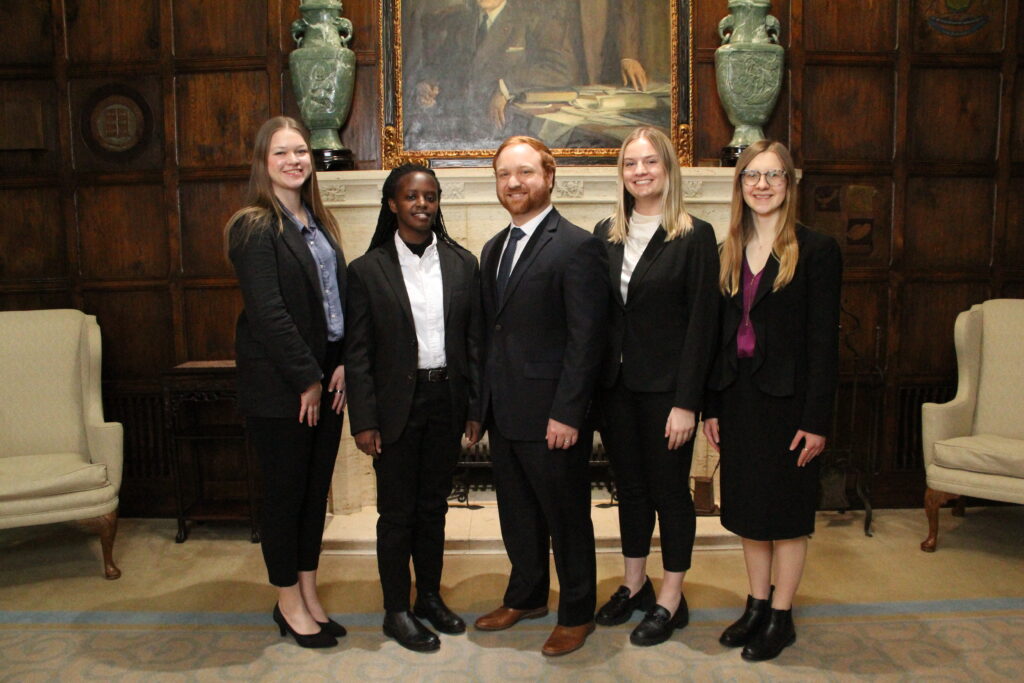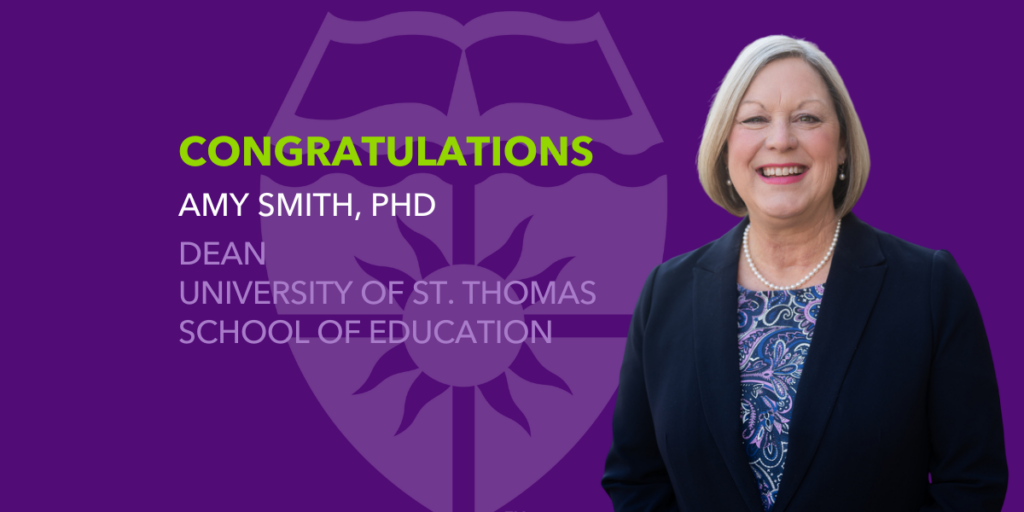Children often need mental support during their educational journey. Teachers often need guidance in providing that support. Enter the Minnesota Institute for Trauma-Informed Education (MITIE) at the University of St. Thomas.
A collaboration between the School of Education and the Morrison Family College of Health, MITIE was launched in 2021 with a laser focus on outcomes and providing classroom-ready strategies for educators. Even though current education majors at St. Thomas learn about trauma and its impact in the classroom, many teachers already in the field need support and training to help them utilize trauma-informed practices.
Three professionals in the inaugural class of MITIE Research Fellows have been working since last spring on research projects aimed at advancing the field and providing new tools to teachers and administrators seeking support and training in trauma-informed education.

“Given that trauma is so widespread, it’s very important for educators to be trained in trauma-informed practices,” said research fellow Brandy Opse, English instructor at Century College. “It’s a new way of seeing people, courses, interactions and course-related challenges for our students. Moreover, it’s important for educators to understand that trauma and toxic stress impact the brain and body, which in turn impacts students on an emotional, behavioral,and cognitive level.”
Caroline Toscano, research fellow and instructional designer at Century College, is partnering with Opse on researching trauma-informed practices for community college students.

“For many, trauma equals mental health, but it’s much broader than that,” Toscano said. “Trauma is more like a part of the human condition, and it involves more than just the individual. It affects the community and the society at large. I hope that what we learn about trauma-informed education practices can be generalized to the workplace, society and beyond. We could all benefit from learning more about recognizing trauma in others and doing our best to prevent re-traumatization.”
Research fellow Jonathan Luknic, the principal at Birch Lake Elementary, shifted his focus from individual student interventions to the bigger picture of professional learning for all educators. He sees more impact in building a trauma-informed school culture.
“It is critical for educators to have a high level of training in trauma-informed practices. That is really the central thesis to my research project,” Luknic said. “It is only with an understanding of the prevalence and impact of childhood trauma, that the true importance of trauma-informed practices can be fully comprehended.

“Educators have always had a sense of mission to meet the needs of their students and understanding trauma-informed practices can give them another critical set of tools to do just that. If educators are provided with information about the why and the how of being trauma informed, all their practices in the classroom will be informed by this learning.”
The fellows’ research and resulting tools for schools and educators will be made available for free. These types of practical outcomes are key to MITIE’s mission, according to recent MITIE Associate Director Laura Linder-Scholer. “The MITIE Research Fellows give us a great opportunity to be part of the community, which helps to bridge the gap between theory and practice. We want to connect the dots for people between the impacts of childhood trauma on learning and development, and then we want to give them classroom-ready tools that foster a safer and more effective learning environment for all students.”
Toscano and Opse realized early on they needed to sharpen their focus and stay mindful of how the resulting tools would be accessed by the intended audiences of faculty and staff. That led them to add web-based professional development courses. This will allow their colleagues to learn on their own time and pace.
Luknic also plans to offer self-paced courses for educators to expose them to trauma-informed practices. He added pre- and post-course surveys to gauge the impact of each course as educators move through the training. The anonymous data collection will help school communities determine any gaps as they work to strengthen these skill sets among their teachers.
Classroom interactions and student success will remain at the center of their work, but Toscano sees benefits for all of us as we help each other through life’s challenges. “This experience has given me a new outlook on how we can apply trauma-informed practices in our everyday interactions with one another,” she said. “It is a valuable lens through which to interpret human behavior and decision-making.”
Opse feels inspired and hopeful for her students. “Knowing that our initiatives are helping students experiencing trauma and toxic stress propel me to continue forward,” she said. “I feel blessed to be able to be in a position where I can help others experiencing challenging times due to trauma while working hard to complete their studies.”
Interested parties can apply now for the 2023-2024 MITIE Research Fellowship. The deadline for submissions is April 15. Selected Fellows will receive ongoing training and development, supervision from leading trauma experts, and a $12,000 stipend award.







